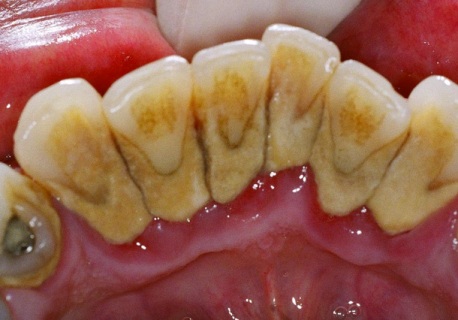Periodontitis: Facts You Need to Know
Gum disease is a serious problem. It is often referred to as a silent disease because it can sneak up on you without many symptoms. However, periodontitis, a severe gum disease, can affect more than just your mouth.
Table of Contents
What is Peridontitis?
Your mouth has some type of bacteria present at all times and most are harmless. However, some will attach to your teeth and feed off the food stuck there. The bacteria can cause tooth decay. It can also create an infection in your gums.
Periodontitis occurs when gum disease gets out of control and your body attempts to fight the infection that occurs. The result is damaged bone mass in the jaw and ligament damage around your teeth. Left untreated, the disease will progress to the point of losing your teeth.
Symptoms of Periodontitis
You may not realize that you have gum disease until it is fairly advanced. Periodontitis doesn’t cause pain, so it is easier to ignore, even with other symptoms.
If you notice that your gums are swollen and red, you should immediately see a dentist. This is one of the signs of gingivitis, which can turn into periodontitis if not treated.
You may notice that your gums are bleeding frequently or pulling back from your teeth. The advanced gum disease can also cause your teeth to loosen. You may experience bad breath or a bad taste in your mouth.
Unfortunately, most people don’t realize that these are the signs of a serious issue.
Preventing Gum Disease
Certain people are more likely to experience periodontitis. Smokers are more likely to have it. Your risk also increases with age and if you have diabetes.
While you can’t stop getting older, you can quit smoking and you can stay on top of your blood sugar levels if you are diabetic.
It’s also a good idea to see a dentist on a regular basis. Your dentist will catch any signs of gum disease early on so it will never have to get so bad that you lose your teeth. If your teeth are too crooked to clean easily, you may need braces.
Proper tooth care can go a long way toward preventing gum problems. Make sure you brush at least twice a day and floss once. Just these simple steps can help eliminate most causes of gingivitis. Using an antibacterial mouth wash is also important.
Remember that poor oral health can affect your overall health. It can increase your chances of heart disease and cause fertility problems and even premature labor in pregnant women.
It’s important to stay on top of your gum and tooth health with regular visits to your dentist. If anything is going on in your mouth, the dentist should be able to fix it or refer you to an orthodontist if necessary.
